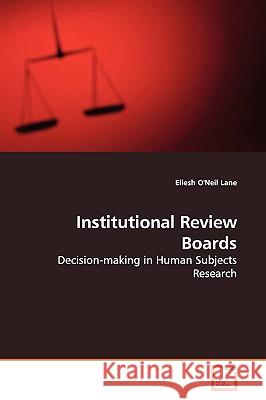Institutional Review Boards » książka
Institutional Review Boards
ISBN-13: 9783639083453 / Angielski / Miękka / 2009 / 192 str.
Issues involving the risks and benefits of human subjects research converge at the intersection of research in engineering, science, ethics, medicine, and technology and society. By law, research organizations must establish an institutional review board (IRB) to decide whether to approve research with human participants. With over 6500 IRBs in the US, IRB decision-making can vary beyond the basic federal guidelines. Both policymakers and researchers increasingly are focusing on the adequacy of the existing oversight system. As tension mounts over applicability of the guidelines to all human subjects research, examination of the system is needed to increase understanding of how committees actually decide whether to approve or disapprove such research in their organizations. IRB members roles, participation, expertise on the IRB and relationship to perception of IRB decision-making processes at seven leading U.S. research universities are discussed. By questioning who the experts are and how different members attribute value to a research protocol on an IRB, we can begin to address broader issues of expertise and public understanding of science and research.











